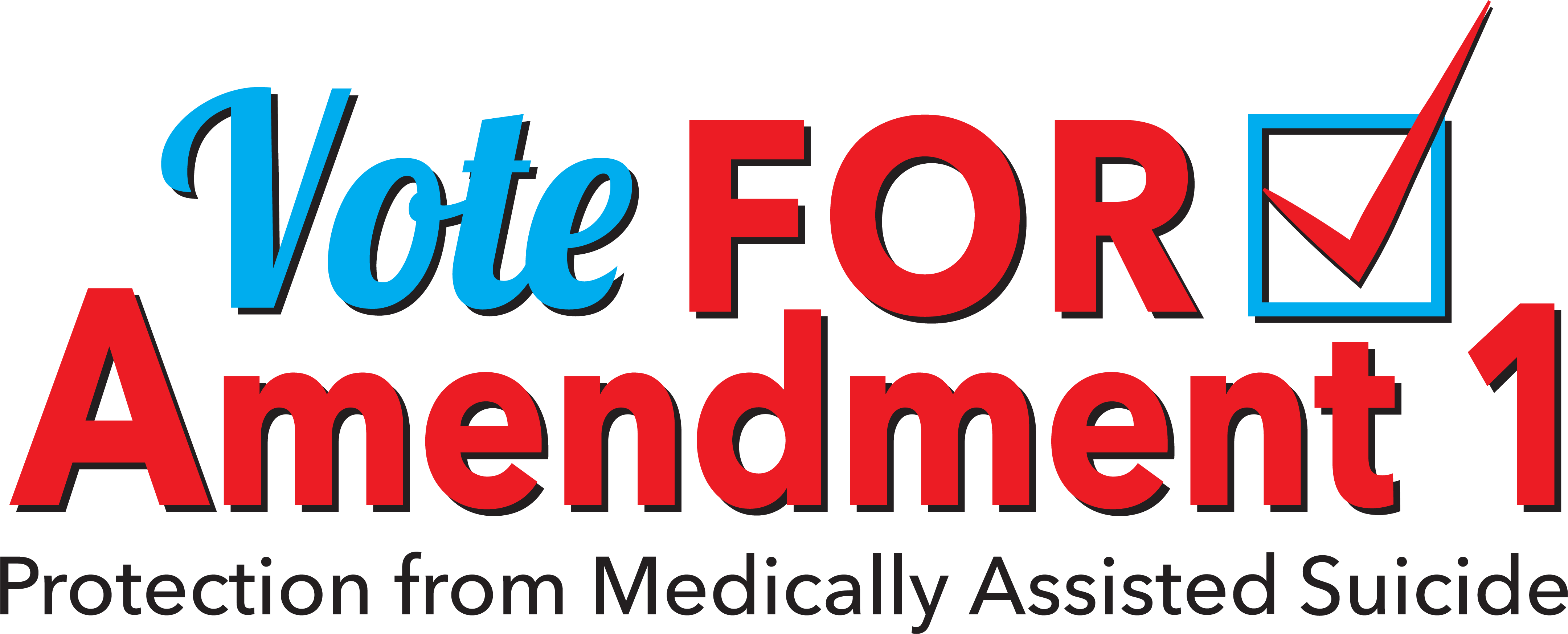protection from medically assisted suicide
Protect You & Your Family Dangerous consequences Most vulnerableA LIFE-AND-DEATH question will appear on the ballot Election Day, Nov. 5. West Virginia Amendment 1, otherwise known as “Protection of persons against medically assisted suicide”, will add language to the state’s constitution to permanently protect West Virginians from the horrific consequences as seen in Oregon, Vermont, California, Washington, and many more states and countries who have legalized assisted suicide.
Right now, in West Virginia, care is considered as a good and natural part of life. We were cared for at the beginning of our lives and were raised to care for our loved ones at the end of their own. When suicide is offered as a “solution,” this care is redefined as a burden. Those in need of care will feel the pressure to kill themselves which is known as the “Duty to Die”.
Did You Know?
When Medically Assisted Suicide is Legal . . .
- The ability to make your own healthcare decisions is destroyed
-
It violates human dignity and denies equality before the law
-
Insurance companies deny lifesaving care and instead offer cheaper lethal drugs
-
There is no medical person required to be present when lethal drugs are taken
-
Referral for psychological evaluation is rare prior to doctors writing lethal prescriptions
-
It covers for murder
-
Safeguards are watered down or eliminated over time

Protect precious moments

Dr. Brian Callister’s Interview with Carlson Tucker,
Listen to Delegate McGeehan, who introduced the amendment, tell the story of one of his constituent who had cancer and even though the doctor said he would go into remission he still wanted to kill himself. Oregon provided this opportunity. Portland, Oregon is marketing itself as “Suicide Tourism” where you check into a “death hotel”, wait the required two weeks, pick up your prescription, and go back to the hotel and kill yourself.
Delegate Pat Mcgeehan, R-Hancock appearing on Washington Watch
Medically Assisted Suicide
(frequently called “physician assisted suicide”) is a process where patients, diagnosed with a terminal illness and having six months or less to live, can make a request of a physician to help them end their lives. Usually this is done with a lethal overdose of drugs prescribed by the doctor and taken by the patient.
Euthanasia
(also called “mercy killing”) is similar to medically assisted suicide, except the drugs that will kill the patient are administered to the patient by someone else, usually the doctor who prescribed them.
